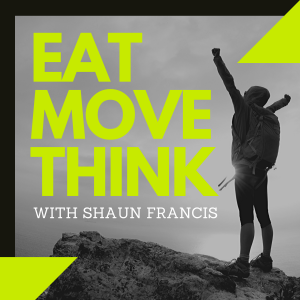Miscellaneous
How much protein do you need if you’re trying to lose weight but also retain, or even build, muscle mass? What’s better—plant- or animal-based protein? Why is protein so key in preventing sarcopenia, or age-related decline in strength? And, is it possible to consume too much protein? In a special feature interview with protein expert Stuart Phillips of McMaster University, guest host Leslie Beck, Medcan’s director of food and nutrition and the Globe and Mail’s nutrition columnist, tackles these questions and more. [This episode originally aired in August 2020.] Episode 80 webpage. LINKS Leslie Beck on Twitter @LeslieBeckRD. Stuart Phillips on Twitter @mackinprof. And here’s his bio at McMaster University. Protein Calculators: How much protein do you need each day? Lots of protein calculators are out there. FitnessVolt.com has one that takes into account your weight, height and activity level, and provides you with a range of values. Click here. Some of Prof. Stuart Phillips best-known authored or co-authored papers: IOC Consensus Statement: Dietary Supplements and the High-Performance Athlete Ingestion of whey hydrolysate, casein, or soy protein isolate: effects on mixed muscle protein synthesis at rest and following resistance exercise in young men The NY Times Well Blog write-up of Phillips’ “boot camp” study that demonstrated the role of high-protein intake in gaining muscle mass while still losing weight. Prof. Phillips’ 2020 coauthored paper: Of sound mind and body: Exploring the diet-strength interaction in healthy aging. INSIGHTS Why do you hear so much about protein compared to other macronutrients? There are a few reasons, Phillips says. First, protein is the most satiating macronutrient—if you eat an equal amount of carbs, fat and protein, it’s the protein that will leave you feeling most satisfied, which means you’ll eat less and it will take longer for you to get hungry again. Second, protein is key to muscle development and strength, and eating protein is important to retaining lean muscle mass while you lose weight. Finally, protein consumption becomes more important as you age because getting enough of it is a key way to fight off sarcopenia, or age-related muscle decline. [05:30] If you’re doing resistance training two or three times a week and looking to retain strength while losing fat, you should be aiming to consume between 0.5 to 0.7 grams of protein per day for every pound you weigh—so someone who, for example, weighs 180 pounds should aim for up to 130 grams of protein everyday, divided between your meals. (That breaks down into 43 grams of protein per meal if you’re eating three meals a day.) This can easily be done at dinner with a chicken breast, some broccoli and baked potato, but gets harder if you’re just having a bowl of cereal at breakfast. In that case, Phillips says, “you need to do something to your meal to get up to that level.” [07:10, 18:40] More is not necessarily better when it comes to protein. According to Phillips’ research, eating more than 0.7 grams of protein per pound of bodyweight per day won’t provide much benefit to anyone besides hardcore bodybuilders. The science suggests the body just can’t absorb any more. The good news is that most people can consume the protein they need simply through their regular eating patterns, without having to supplement protein levels. If you want protein but are really looking to control your calories, then supplements are great, Phillips says. “But if you’re judicious in the way you plan your food and the way you eat, then it’s really easily achievable.” [20:10] It’s a common belief that we should consume protein before a weight workout, but, as it turns out, there’s no evidence to prove that this is helpful. “The analogy I like to give—and it applies to a lot of things—is that protein makes your muscles become more like a sponge and more able to absorb nutrients,” Phillips says. “So the time when you’re more sensitive to the impact of the nutrition is always post-workout.” Phillips used to believe that it was optimal to consume protein immediately after a workout, and the “anabolic window” for protein consumption is open for about a day after the workout. [21:32] So when it comes to maintaining muscle mass—which is important for healthy aging—what’s better: plant or animal protein? Well, if you’re active and consuming those 0.6-0.7 grams of protein per pound, it doesn’t really matter. Phillips notes that a lot of animal-sourced protein, like eggs or dairy, tend to be nutrient rich, so when you consume those items you’re also consuming a lot of other nutrients your body needs, like iron or calcium. But so long as you're mindful of where your nutrients are coming from, there’s no reason you can’t follow, say, a vegan diet and still get everything you need. [26:10]

